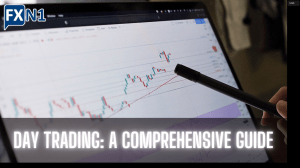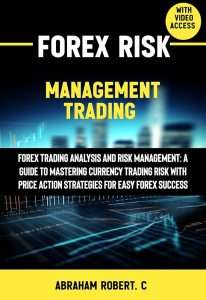Forex Trading Education: A Comprehensive Guide
Unlock the secrets of Forex trading with our comprehensive guide. Learn essential strategies, risk management, and more to confidently navigate the global currency market. Become a Forex master today!
The foreign exchange market, or Forex, presents both immense opportunities and significant risks. Understanding the intricacies of this global marketplace requires dedicated learning and a commitment to continuous improvement. This comprehensive guide delves into the essential aspects of Forex trading education, equipping you with the knowledge and skills to navigate the market effectively. Whether you’re a novice or an experienced trader seeking to refine your strategies, this resource offers valuable insights to enhance your trading journey.
Understanding the Forex Market Fundamentals
Before diving into complex trading strategies, a solid foundation in Forex fundamentals is crucial. This involves grasping core concepts such as currency pairs, pips, lots, leverage, and margin. Understanding these basic building blocks allows you to interpret market data accurately and make informed trading decisions. It’s like learning the alphabet before attempting to read a novel; the fundamentals are the key to unlocking a deeper understanding of the Forex market.
Currency Pairs and Their Dynamics
Forex trading centers around currency pairs, representing the exchange rate between two currencies. Major pairs, like EUR/USD or USD/JPY, are highly liquid and volatile, offering significant trading opportunities. Minor pairs, such as GBP/CHF or AUD/CAD, exhibit different characteristics and may present unique trading advantages. Understanding the economic factors influencing each currency within a pair is essential for effective trading.
Leverage and Margin Explained
Leverage is a double-edged sword in Forex trading. While it amplifies potential profits, it also magnifies losses. Understanding margin requirements and managing risk effectively are paramount. Inappropriate use of leverage can lead to substantial losses, quickly eroding your trading capital. A cautious approach is vital to sustainable trading success.
Developing a Robust Trading Strategy
A well-defined trading strategy is your roadmap to success in Forex trading. It should encompass your trading style, risk tolerance, and specific market analysis techniques. A robust strategy provides structure and discipline, helping you make consistent, informed trading decisions, regardless of market volatility.
Technical Analysis: Chart Patterns and Indicators
Technical analysis involves studying past market data to predict future price movements. This relies heavily on charting techniques and various indicators. Learning to identify chart patterns, such as head and shoulders or double tops/bottoms, can provide valuable insights into potential trend reversals. Understanding popular indicators like moving averages, RSI, and MACD is crucial for interpreting market momentum and identifying potential entry and exit points. Mastering these techniques allows for a more data-driven approach to trading.
Fundamental Analysis: Economic Factors and News Events
Fundamental analysis focuses on macroeconomic factors impacting currency values. This involves studying economic indicators such as inflation rates, interest rates, GDP growth, and employment data. Major news events, such as central bank announcements or geopolitical developments, can significantly influence currency movements. Understanding these factors allows you to anticipate potential shifts in market sentiment and adjust your trading strategies accordingly.
Risk Management: Protecting Your Capital
Effective risk management is not merely an option; it’s a necessity in Forex trading. Losing control of risk can lead to devastating losses and potentially wipe out your trading account. A well-defined risk management plan is crucial for long-term success.
Position Sizing and Stop-Loss Orders
Position sizing is determining the appropriate amount to invest in each trade. It’s crucial to limit your risk per trade to a manageable percentage of your overall capital. Stop-loss orders are essential tools that automatically exit a trade when the price reaches a predetermined level, limiting potential losses. These measures are fundamental for protecting your capital and preventing catastrophic losses.
Diversification and Portfolio Management
Diversifying your trading portfolio across different currency pairs and asset classes can help mitigate risk. This reduces the impact of any single trade’s outcome on your overall portfolio. Regularly reviewing and adjusting your portfolio based on market conditions and your trading performance is key to long-term success.
Trading Platforms and Tools
Choosing the right trading platform and tools can significantly impact your trading efficiency and success. Different platforms offer varying features and functionalities, so selecting one that suits your trading style and needs is crucial.
Choosing the Right Broker
Selecting a reputable and regulated broker is paramount. A trustworthy broker provides a secure trading environment, reliable execution, and competitive spreads. Thoroughly research potential brokers, considering factors such as regulation, trading costs, customer support, and platform features before making a decision. This initial due diligence can prevent future problems and protect your assets.
Utilizing Charting Software and Indicators
Many platforms offer advanced charting tools and a wide range of technical indicators. Learning to effectively utilize these tools can enhance your analysis and improve your trading decisions. Experiment with different indicators and charting styles to find what works best for your trading approach. Remember, the goal is to find the tools that allow you to identify market trends and opportunities effectively.
Continuous Learning and Adaptation
The Forex market is dynamic and ever-evolving. Continuous learning and adaptation are essential for long-term success. The market is constantly changing, and what worked yesterday might not work today. This section details ways to stay updated and improve your trading skills consistently.
- Stay Updated on Market News: Follow financial news sources and economic calendars to stay informed about events impacting currency markets.
- Attend Webinars and Workshops: Participate in educational events to enhance your knowledge and learn from experienced traders.
- Read Trading Books and Articles: Expand your knowledge base by reading reputable sources on Forex trading strategies and techniques.
- Join Trading Communities: Engage with other traders to share insights, learn from their experiences, and gain different perspectives.
Backtesting and Practice
Before risking real capital, it’s crucial to thoroughly backtest your trading strategies using historical data. This allows you to evaluate their effectiveness and identify potential weaknesses. Practice trading on a demo account before venturing into live trading. This provides a risk-free environment to refine your skills and gain confidence in your strategies.
Demo Account Trading
A demo account is an invaluable tool for practicing your trading strategies without risking real money. It allows you to simulate real market conditions and get a feel for the platform before investing your capital. Use this opportunity to test different strategies, refine your approach, and build your confidence before entering the live market. Consider it a necessary stepping stone on your path to successful trading.
Backtesting Strategies
Backtesting is the process of applying your trading strategy to historical market data to assess its performance. This helps identify potential flaws and areas for improvement before risking your capital. While not a perfect predictor of future results, backtesting significantly improves your chances of success in live trading. It’s a critical step that should never be overlooked.
The Psychology of Trading
Successful Forex trading requires not only technical skills but also strong emotional discipline. Managing emotions like fear and greed is crucial for making rational trading decisions. This involves developing a mindset that prioritizes risk management and avoids impulsive actions driven by emotions.
- Emotional Discipline: Avoid impulsive trades based on fear or greed. Stick to your trading plan.
- Patience and Discipline: Successful trading requires patience and the discipline to follow your strategy.
- Risk Management: Prioritize protecting your capital over chasing quick profits.
- Continuous Learning: Never stop learning and adapting to market conditions.
Forex trading education is an ongoing process, demanding continuous learning and adaptation. Mastering the fundamentals, developing a robust strategy, and practicing effective risk management are crucial for success. Consistent effort, dedication, and a commitment to continuous improvement will pave your way towards achieving your trading goals. Remember to always prioritize responsible trading and seek professional financial advice when needed. The Forex market offers significant opportunities, but it’s essential to approach it with knowledge, discipline, and a well-defined plan. By implementing these principles, you can significantly increase your chances of success and navigate the complexities of the global currency market with confidence and expertise. Ultimately, consistent profitability in Forex demands a holistic approach that blends technical proficiency with astute risk management and a disciplined trading mindset. Embrace the learning process, and the rewards will follow.







